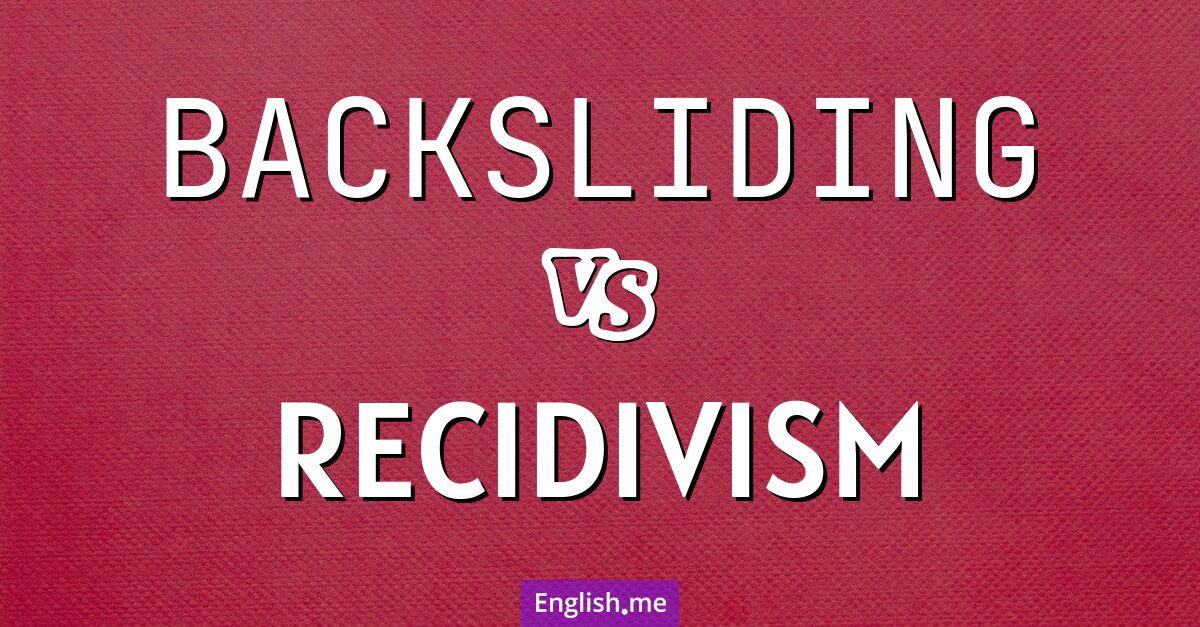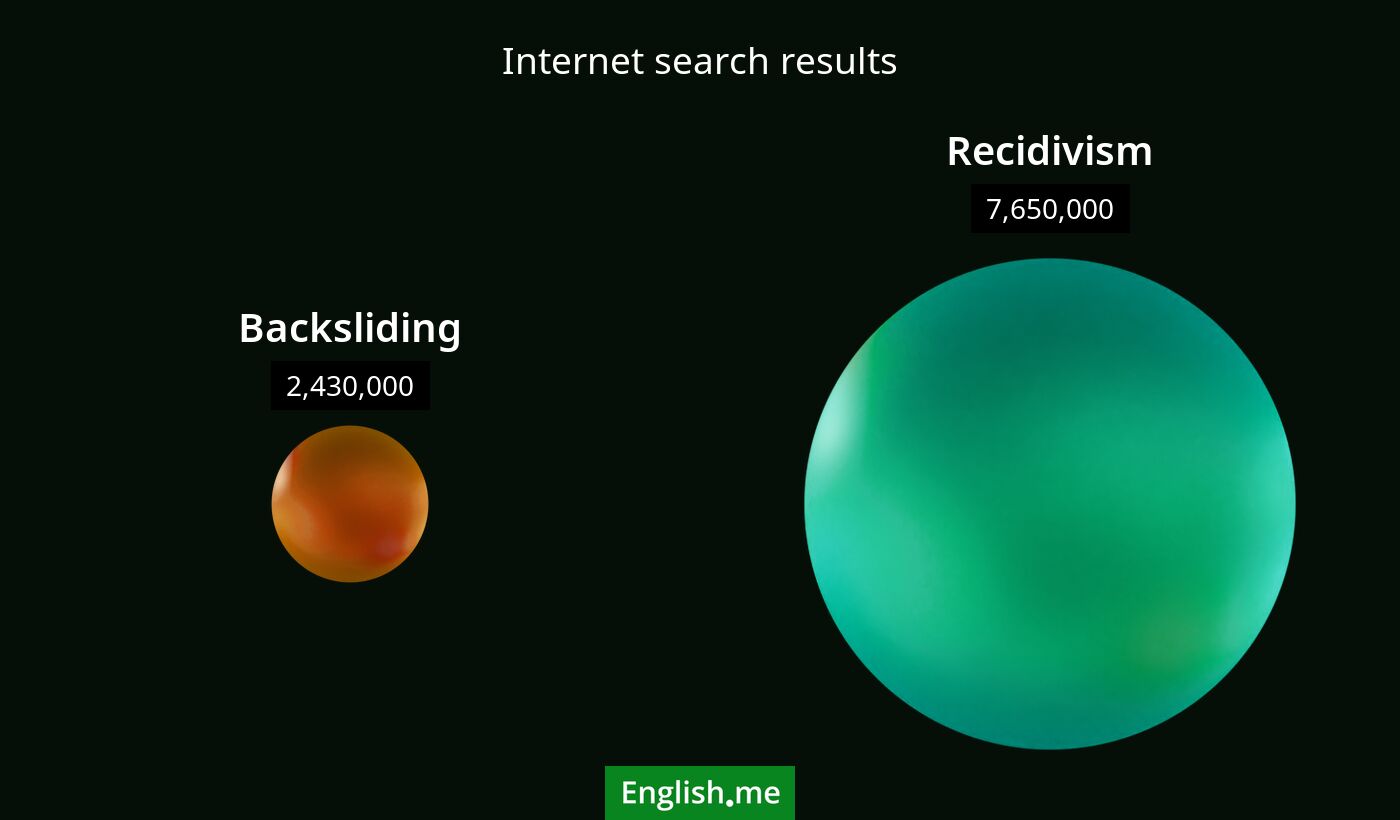"Backsliding" vs. "recidivism": the nuances of regression
Reviewed and edited by  Lloyd Cooper 07/10/2024, 21:39
Lloyd Cooper 07/10/2024, 21:39
English.me team member

 What is similar?
What is similar?
Both "backsliding" and "recidivism" refer to the act of reverting to a previous, typically less desirable state or habit. They both imply a return to a prior condition often seen as negative or undesirable.
 What is different?
What is different?
"Backsliding" is often used in a broader context, including religious, personal, or general behavioral contexts, and doesn't always imply illegality. "Recidivism" is specifically used in the context of criminal behavior, indicating a relapse into criminal activity and is often used in legal and criminological discussions.
 Which one is more common?
Which one is more common?

 Examples of usage
Examples of usage
Backsliding- After making great progress in his recovery, John experienced a period of backsliding.
- The company is concerned about backsliding in safety standards.
- There were fears of backsliding in democratic reforms.
- The prison program aims to reduce recidivism rates among former inmates.
- Studies show that education and job training can help lower recidivism.
- Recidivism is a major challenge in the criminal justice system.

 English
English español
español française
française italiano
italiano deutsche
deutsche 日本語
日本語 polski
polski česky
česky svenska
svenska Türkçe
Türkçe Nederlands
Nederlands